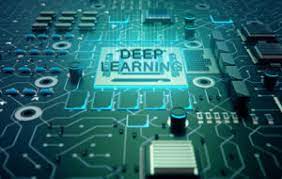Introduction

Deep learning is a type of artificial intelligence that allows computers to learn and improve on their own. Deep learning frameworks are software tools that help developers build and train deep learning models. These frameworks provide a set of pre-built functions and algorithms that make it easier to create and train complex neural networks.
Why are Deep Learning Frameworks Important?
Deep learning frameworks are important because they make it easier for developers to build and train deep learning models. Without these frameworks, developers would have to write all the code from scratch, which would be time-consuming and error-prone. Deep learning frameworks also provide a way to optimize the performance of deep learning models, which is important for applications like image recognition and natural language processing.
Types of Deep Learning Frameworks
There are many different deep learning frameworks available, each with its own strengths and weaknesses. Some of the most popular frameworks include TensorFlow, PyTorch, Keras, and Caffe. TensorFlow is one of the most widely used frameworks and is known for its scalability and flexibility. PyTorch is another popular framework that is known for its ease of use and dynamic computational graph. Keras is a high-level framework that is designed to be easy to use and is often used for rapid prototyping. Caffe is a framework that is optimized for computer vision tasks and is known for its speed and efficiency.
Popular Deep Learning Frameworks
There are several popular deep learning frameworks, including:
1. TensorFlow
TensorFlow is an open-source deep learning framework developed by Google. It is widely used in industry and academia and has a large community of developers.
2. PyTorch
PyTorch is an open-source deep learning framework developed by Facebook. It is known for its ease of use and flexibility.
3. Keras
Keras is a high-level deep learning framework that is built on top of TensorFlow. It is designed to be easy to use and allows developers to quickly build and train deep learning models. In conclusion, deep learning frameworks are powerful tools that can help developers build and train complex models quickly and accurately. They are optimized for performance and have large communities of developers who provide support and contribute to their development. If you are interested in deep learning, it is worth exploring some of the popular deep learning frameworks to see which one is right for you.
Advantages of Using Deep Learning Frameworks
There are several advantages to using deep learning frameworks:
1. Faster Development
Deep learning frameworks provide pre-built functions and algorithms that can be used to build complex models quickly. This means that developers can focus on the specific problem they are trying to solve, rather than spending time writing code from scratch.
2. Improved Accuracy
Deep learning frameworks are designed to optimize the accuracy of models. They use advanced algorithms and techniques to improve the accuracy of predictions and reduce errors.
3. Better Performance
Deep learning frameworks are optimized for performance. They use techniques such as parallel processing and GPU acceleration to speed up the training and inference of models.
4. Community Support
Deep learning frameworks have large communities of developers who contribute to their development and provide support. This means that developers can get help and advice from other experts in the field.
The Disadvantages of Deep Learning Frameworks
While deep learning frameworks can be helpful, they also have some disadvantages.
1. Limited Flexibility
Deep learning frameworks are designed to work with specific programming languages and hardware. This means that if you want to switch to a different language or hardware, you may need to rewrite your entire codebase.
2. Steep Learning Curve
Deep learning frameworks can be difficult to learn, especially for beginners. They require a strong understanding of programming concepts and mathematical principles.
3. Lack of Customization
Deep learning frameworks provide pre-built functions and libraries, but they may not always meet your specific needs. This can limit your ability to customize your AI models.
4. Resource Intensive
Deep learning models require a lot of computing power and resources. This can make it difficult to train and run models on smaller devices or with limited resources.